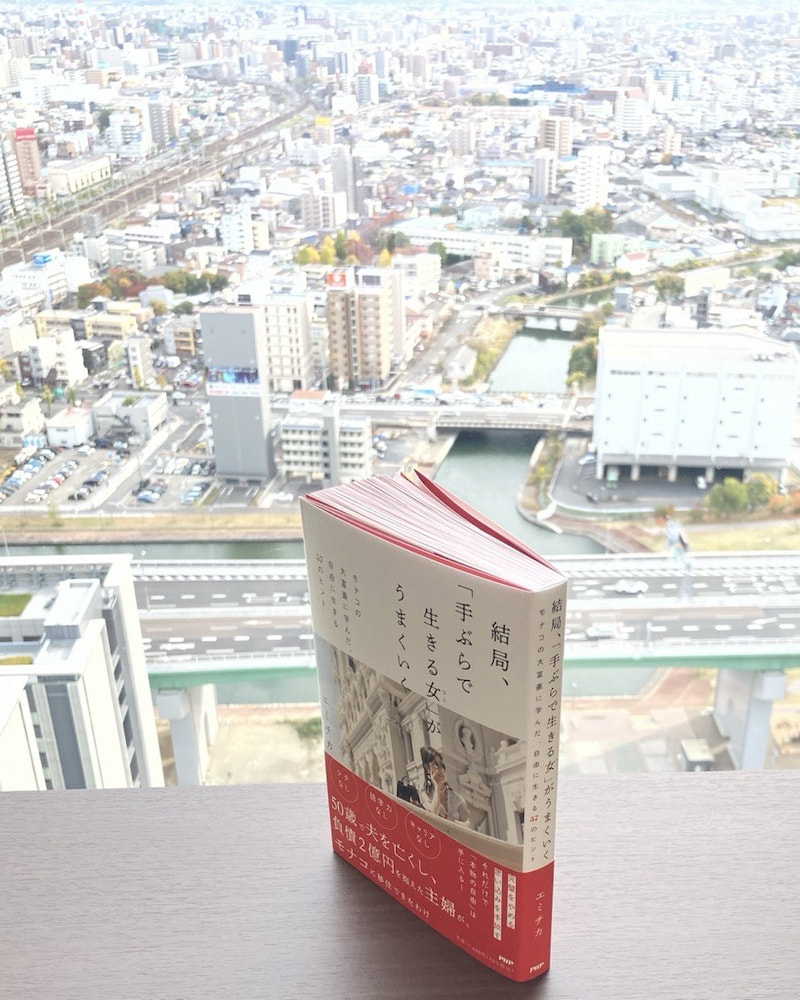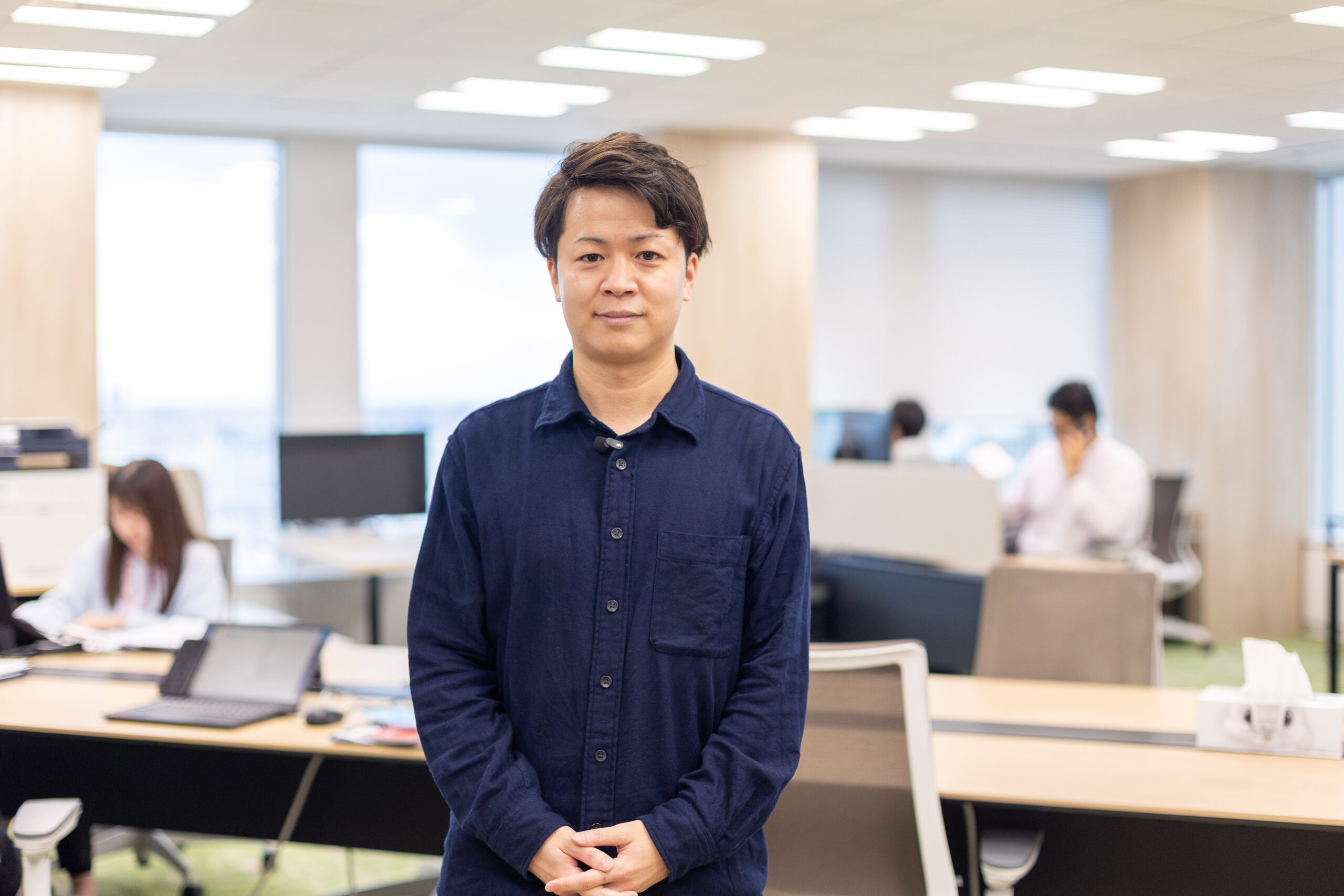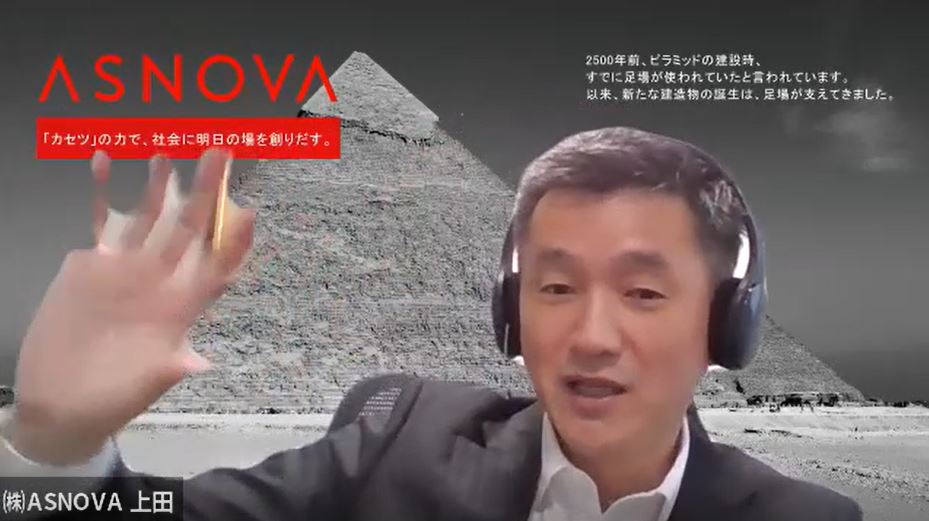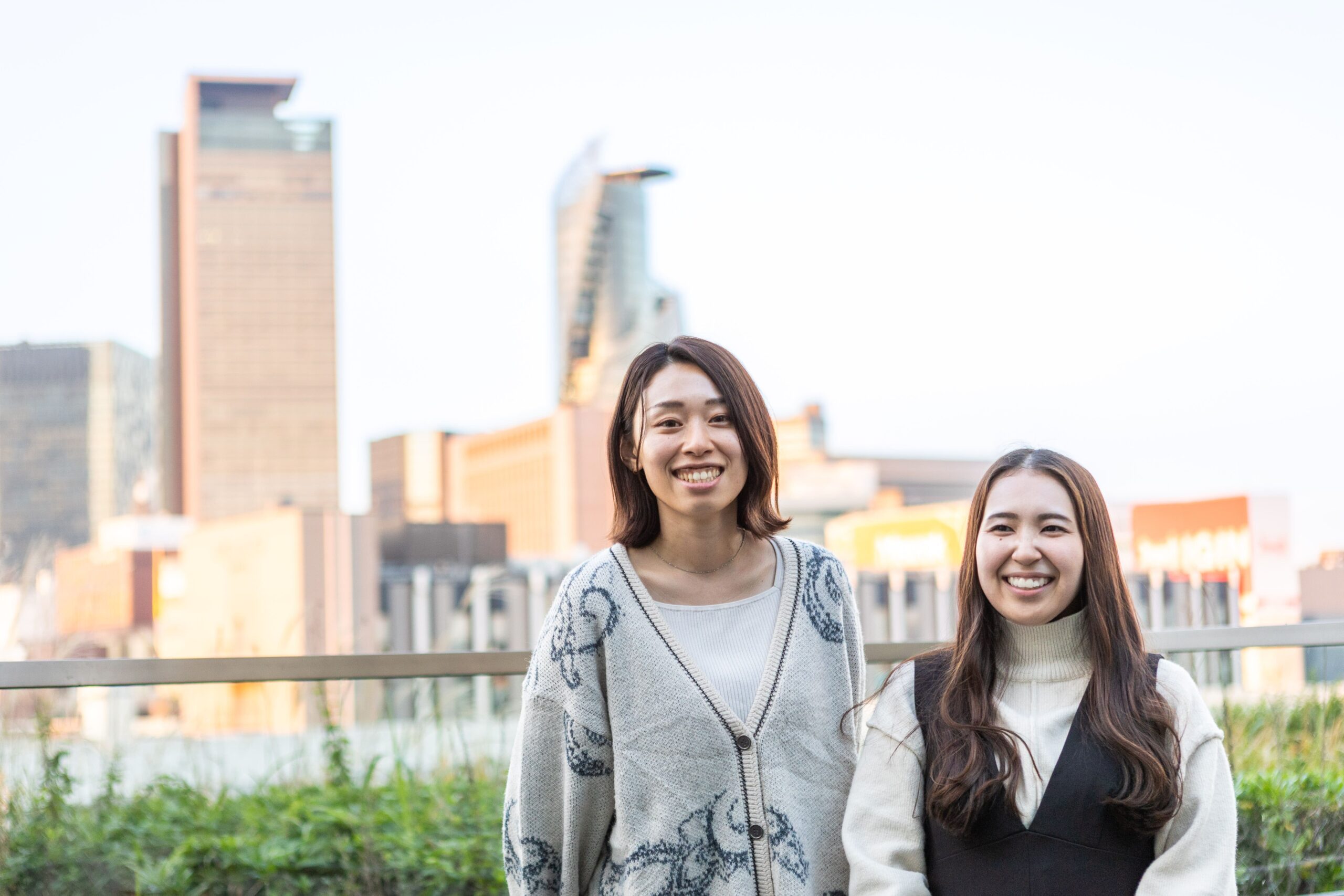社長から見た社会の動きと身に付けるべきスキル。読書がもたらすメリットが制度の背景に。
杉山:今回は、人事制度の一つである「リベラルアーツ制度」について、取材をさせていただきます。さっそくですが、この制度を導入された背景を教えてください。
上田:今まで経済が右肩上がりで、どちらかというと正解がある社会だったと思います。学校の教育現場も同じで、正解を求めて勉強し、それに応えられる人が、優秀だというような形だったと思います。今、変化がものすごく激しくて、特にこのグローバルな社会では、もはや正解がない状態です。これをしたら正解で、これをしたら間違いということが成り立たない世の中になってきています。そうなると、その1つの正解よりも、多様性っていうものが求められているかな、と感じます。
最近、文部科学省などで20世紀型教育から21世紀型教育への変化が叫ばれています。いわゆる偏差値重視で偏重型の教育から、多様性の理解、物事には色々な見方があるのだと学ぶことが結果として、世の中に適用できることに繋がり、人生が豊かになっていくのだと思います。
読書をすることで、それぞれの分野の新しい発見があったり、視野が広がったり、本の内容を疑似体験したような状態になり、新しい世界に踏み出すきっかけとなったりと、読書することには、たくさんのメリットがあると思っています。
 ベストセラーコースで11月に配布された本。この本を受け取った男性社員は、“まさにこの人の人生に入り込んだ感じで、一気に読んでしまった。始めるのはいつでもいいんだ!と勇気づけられた”と話す。
ベストセラーコースで11月に配布された本。この本を受け取った男性社員は、“まさにこの人の人生に入り込んだ感じで、一気に読んでしまった。始めるのはいつでもいいんだ!と勇気づけられた”と話す。
杉山:疑似体験ができるのは本ならではですよね。その他に社長が注目されているメリットはありますか?
上田:近年、語彙力の低下が問題となっていると聞いていますので、語彙力を向上させるためには、読書が1番だと思っています。語彙力の向上で、表現が豊かになったり、自分の考えを相手に伝えやすくなったりすると思います。どうしても語彙力が低いと相手の話を理解し、思いやることができず、様々なトラブルが起きる原因になります。この問題は、子供たちの現場で起きているようですが、実は大人も同じで、生きている世界が狭くなると、思考が浅くなり、世界観とか、相手のことを感じる力が弱くなります。こういう時代に変わってきたからこそ、読書の必要性が改めて見つめ直されていると知ってから、自分自身も読書の必要性を感じ、制度としてやってみよう、ということでスタートしたという経緯があります。
前から好きだったわけではない読書。習慣化されて良かった感じる読書のメリットとは?
杉山:上田社長自身は、読書は小さい頃から好きな方だったんですか?
上田:そうではなかったんですよ。そうじゃなかったので、本が嫌い、この制度が要らないと思う人の気持ちもよくわかります。今は、本を読むようにしていて、割と習慣化してきたので良かったなと思います。
杉山:毎月今1冊、お配りになられている本は、社長が選ばれているのですか?
上田:本屋さんで、先月中のベストセラー等、3つぐらい選択肢があるんですよ。今業界で話題になっている本や、ビジネス書等。自分が読みたいコースの本を選ぶ仕組みです。
杉山:選択できるっていう形なのですね。社長も、本を読むようになって、習慣化されてきたというお話もありましたが、自分の中で語彙力や表現の仕方等、幅の広がりは実感されていることはございますか?
上田:ええ、それは間違いなくあります。業界人、経済界や文化界などのトップリーダーの方々の事業に至った背景や想いを知ることで、様々な決断や判断する際に、判断基準の一つになっていると思います。実際に、お会いしていろんな話を聞ける場面がたくさんあればいいですけど(笑)なかなかないのでね。
語彙力を鍛えると、どんな仕事であっても相手のことを理解する力が非常に高まるので、やっぱり人生において非常に豊かなものを与えてくれているんじゃないかな、という風に思っていますね。
杉山:人生を豊かにするとか、幸せになるための1つの手段として、読書が入っているのですね!どんな小説であっても、伝記であっても、本を読むと確かに疑似体験できるので、その体験が1つの判断基準になったり、将来に繋がるのだとお話を聞いて、とても勉強になりました。
幸せを手に入れるのは、そんな簡単じゃない。嫌われる立場をとっても続けたいと思っているのは、社長の信念と愛情。
杉山:今後、社員の皆さんへ期待していること、本を読むことを通してどのような姿に育っていってほしいとお考えでしょうか?
上田:このリベラルアーツについては、続けたいと思っています。感想文など、別に何も求めていませんが、制度に対しては、やはり様々な意見があります。みんな読書がそもそも嫌いなので…習慣化されていない人がほとんどです。
杉山:そうですよね。習慣化は難しいですよね。
上田:リベラルアーツをやり始めてすぐに、この制度は、3ヶ月とか半年に1回でも良いのではないかとか、読めないから申し訳ないので、やめた方がいい、とか。正直なことを言うと、予定通りの反応がありました。
例えば、親であれば子供の幸せのために、嫌われる立場を取ります。ですので、その意見を聞いて制度をやめるいうのは、本当の愛情じゃないと思っています。そもそも、この制度は幸せを手に入れる為にあると思っています。幸せを手に入れるのは、そんな簡単じゃないですね。
上田:無駄になるかもしれないですけど、幸せな人生を送ってもらうために読書の習慣を身につけてほしいなと思います。簡単には習慣は身につかないと思うので、信じてやり続けたいです。
杉山:なかなか習慣化されるまでは、難しい部分はありますが、習慣化されて当たり前になっていけば語彙力も向上し、その楽しさっていうのは増していくのかなと思いました。
誰よりも常に、学び続ける社長がお勧めする本とは?
杉山:この本を読んで良かったというお勧めの本があれば、教えていただけますか。
上田:えっとね。じゃ、ちょっと待ってください。
 本の表紙を見せるために、すぐに席を立って本を取りに行ってくださった上田社長。
本の表紙を見せるために、すぐに席を立って本を取りに行ってくださった上田社長。
杉山:はい、存じております!
上田:私は購読しているのですが、あれは雑誌ですね。そこで出会った本が私のおすすめの1冊です。去年、聖徳太子の1400年御遠忌、つまり亡くなられて1400年経ったので、十七条憲法の特集が多くありました。私も知らなかったのですが、十七条憲法は、世界からすごく注目されている憲法として見直されているようです。それで、“日本人なら読んでおきなさい”と紹介されたのが、到知出版社の教養として読んでおきたい「十七条憲法」という本です。
 教養として読んでおきたい「十七条憲法」 致知出版社 付箋が付いているページが気になります。
教養として読んでおきたい「十七条憲法」 致知出版社 付箋が付いているページが気になります。
上田:これを読むと、十七条憲法ってすごいな、と思いました。アメリカの成長企業においても参考にされているようです。
杉山:海外からも、注目されているんですね!どんなことが書かれているんですか?
上田:何が書かれているかというと、すごくシンプルで、例えば「何かことが起きれば皆で集まって議論しなさい。」などです。内容はシンプルですが、驚いたのは、これが1400年前の出来事だということです。その当時は、身分が、すごくはっきりしているじゃないですか。聖徳太子、トップですよね、民衆と共に話し合うなんて絶対そんな、今でこそ、そういったことも理解できますけど…
杉山:そうですよね。1400年前ですよね。その時代にそれを考えて憲法にしたということですよね。
上田:「必ず衆と共に宜しく論ずべし」つまり、独断で物事を決めるとうまくいかない等、いわゆる合義制についても書かれていまして、話し合う上での心構えにも触れています。これは組織運営をしていく時に、強い組織を作るために読みなさいと知って読んだのですが、本当に参考になる1冊です。
杉山:なるほど。私も、ぜひ読ませていただきます。楽しみです。
上田:もう1つ、あります。これも致知から教えてもらって、「おじいちゃん戦争のことを教えて」という本です。これは、日本人なら読んだ方がいいですよ!アサヒビールの名誉顧問であった中條さんが書かれた本です。
上田:これを読むと、戦争に対する考えが変わります。戦争を経験していない世代の我々はやっぱり知るべきだと思います。知識を付けると、視野が広がります。
杉山:どういった時に、社長はこの本を読まれたんですか?
上田:これも月刊誌の致知で、日本人なら読むべき本と紹介されていたのがきっかけです。古い本で、中古で売っていて、Amazonですぐに買いました。
杉山:私も、後で調べてみます!最後に社長から付け足しておきたいことが何か他にございましたら、ぜひお話しいただければ、と思いますがいかがですか?
上田:リベラルアーツ制度で、毎月読んでいきながら、人生で1冊でもいいので、この本に出会えてよかったという体験をしてもらえるとすごくいいな、幸せだなと思います。そういった本にはなかなか出会えないものですので、出会いを楽しみにしながら読んでほしいと思います。
杉山:ぜひそういった本に出会い、社員の皆さんがその本を共有する場があれば、より幸せが広まりますね!
社内報を初公開。社員の家族も読めるように社内報は紙で郵送にこだわる。
※ 画像をクリックすると、PDFがご覧になれます。
グレイスコミュニケーションズ株式会社 中堅・中小企業の多くは、人材やスキルの不足ゆえに、社内コミュニケーションツールである『社内報』の制作・活用が困難な状況にある。グレイスコミュニケーションズは、いわば顧客の広報担当として、従業員の帰属意識上昇、離職抑止、ノウハウ共有、業績アップなど、顧客の課題解決を目指す。
WEB:
recruit.race.co.jp/recruit/grace.html








































